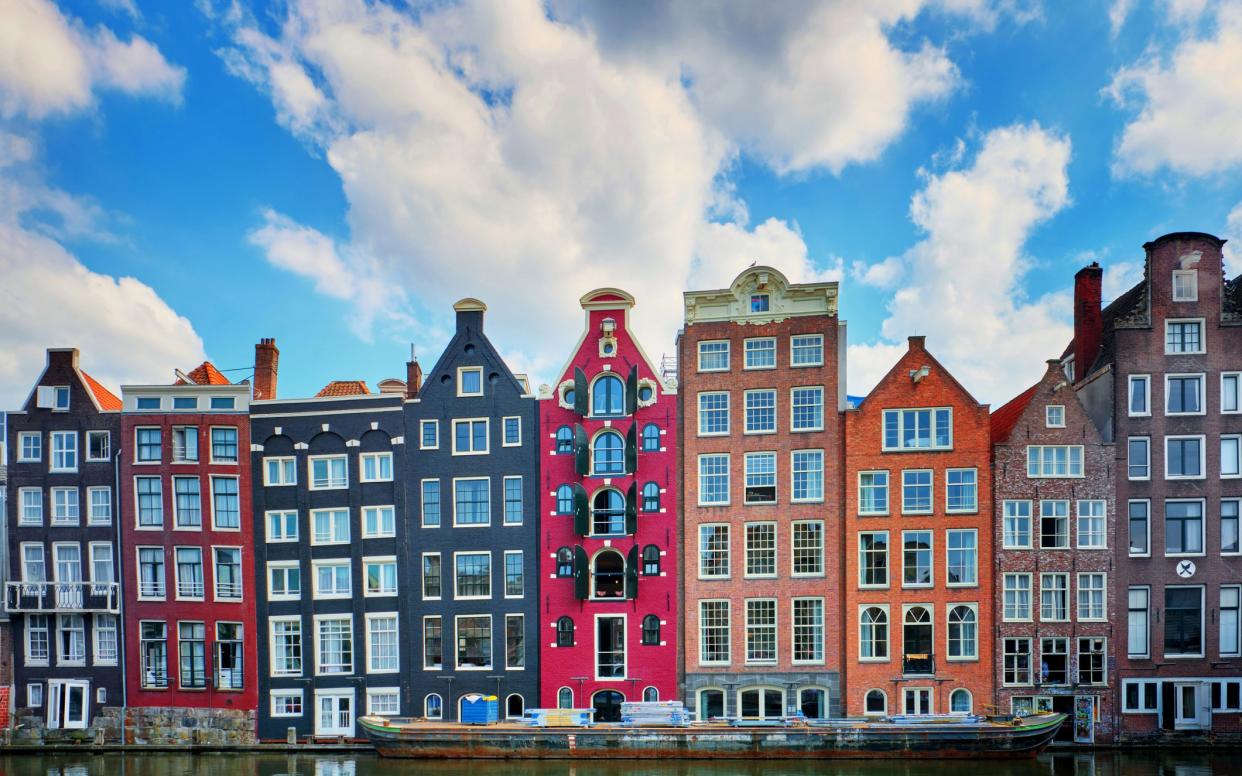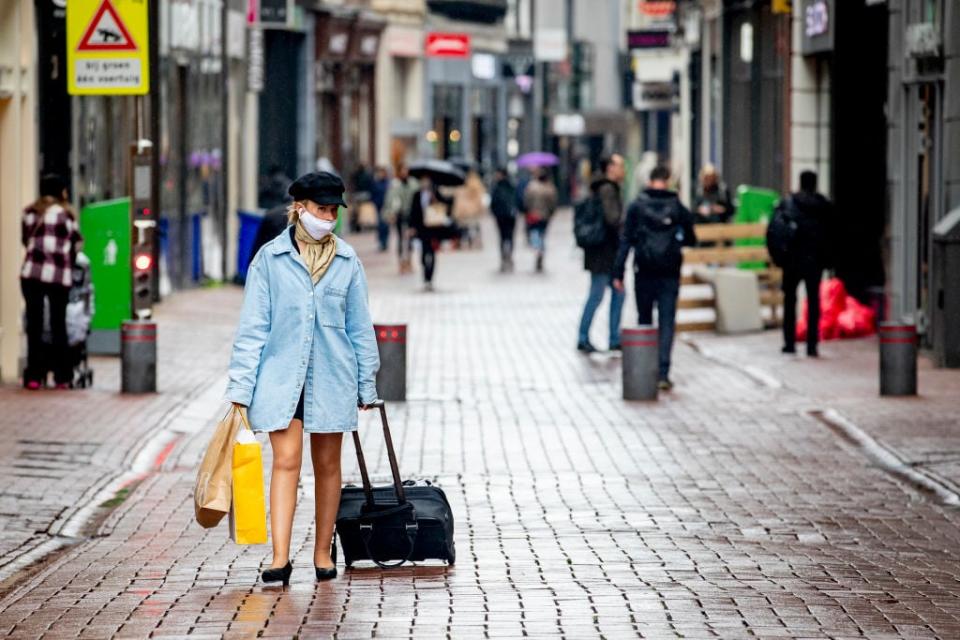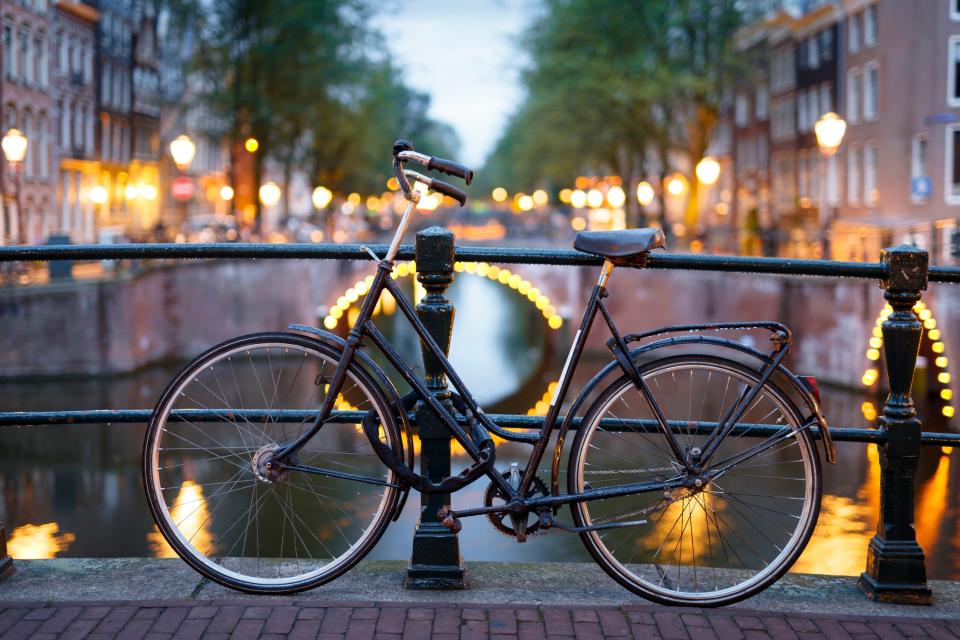A postcard from Amsterdam as the city moves back into 'partial' lockdown

Oh how things change. At the start of July, the Netherlands had announced the lowest weekly infection rate of 43 countries, my husband and I were apologetically admitting to friends back in the UK that restaurant reservations were back on our calendars, and I was campaigning my lockdown-weary mum to leave Surrey and join us for the summer.
The rather smug sounding Dutch “intelligent lockdown”, during which shops remained open and wedding guests could hit 100 - just don’t hug your mother-in-law as the Dutch Justice Minister was caught doing - appeared to have been enough. Yet following last night’s address by Prime Minister Rutte, our adopted country for the last two years is back in ‘partial’ lockdown. From 10pm tonight [Weds 14 Oct], cafes and restaurants must close, shops can’t sell alcohol after 8pm, groups are limited to four, and team sports for adults are prohibited.
It’s a big blow at a time of year when cafe terraces are usually teeming with puffa-clad Dutchies enjoying a coffee and appel taartje and making the most of the late autumn sun. And it comes with the government’s most decisive threat to date - if things aren’t better in four weeks, lockdown proper it is. Schools, the lot.
But for many, this partial lockdown is no surprise. The Netherlands now has Europe’s second highest rate of coronavirus infection, with an average of 322 new infections per 100,000 people in the past 14 days. The Dutch are no stranger to topping global charts, but they’re usually desirable ones. Dutch children are frequently ranked as the happiest in Europe, the Netherlands is number one in the world for work/life balance, and let us not forget that the last Eurovision trophy to be awarded went to the Dutch.
There’s a natural, national confidence here, no doubt buoyed by these well deserved accolades. Early Covid measures gave me confidence too. Rutte announced them a few weeks ahead of the UK, with none of Boris’ bluster, appearing more like an up-front CEO levelling with his team. But as time has gone on, and the R rate increased, his once clear instructions have often sounded more like unconstructive ticking offs from an irritable parent. And that national confidence has at times felt disarmingly close to complacency.

“Well, we can’t carry on like this!” was the usual answer when I expressed concern in June to several Dutch acquaintances that things were opening up too quickly. The Dutch value their freedoms; no sooner were schools back than groups of up to 100 were permitted to gather, and sex workers could trade again, despite the rest of us still being told not to shake hands.
In keeping with the fuss-free culture, the government soon acknowledged they wouldn’t be ‘inspecting cafes with tape measures’ - and before long it felt like many cafes and shops stopped bothering too. Whether due to natural British cynicism, or compulsive following of British as well as Dutch news, we found ourselves living by our own hybrid of rules, adding in extra measures (no playgrounds for the kids or flea markets for me) when Dutch freedom felt too good to be true.
Yet like my American, Spanish and British expat friends, I’ve felt immensely grateful for the freedom we’ve had here and the Dutch efforts to inject some common sense - a major tenet of Dutch character - in to the rules. When the head of our daughter’s school announced she had Covid, I braced myself for the fall-out.
But the school remained open, following a safety assessment by the health authority, and minimum disruption ensued. Even at the height of lockdown, it was hard to feel truly cooped up when you could just jump on your bike and cycle along a canal, no hour long, exercise-only restrictions to comply with.
A quick trip back to the UK in July further highlighted the differences in our pandemic - friends talked of class bubbles, us of boat trips. It also revealed how emotionally exhausting it is to follow two sets of guidelines. We became used to wearing masks in the UK, but in the Netherlands, despite similar infection spikes now being noted, ‘mondkapjes’ were virtually non-existent.

Selfishly, as an expat hoping to spend Christmas with my family, it’s felt frustrating to watch the squandering of what seemed to be an early advantage, whether in practice that was due to a healthier nation, the intelligent lockdown - or just low levels of initial testing.
On September 18th we gathered round the TV for a press conference, expecting a step change in our freedom, only for the new measure to be - drum roll please - bars must close at 1am, with a lecture about how infections <really> must go down. Further press conferences featured the same empty threats. It felt like listening to an exasperated father balling out his teens for holding raucous house parties every time his back was turned, before announcing “Right! your mother and I are going away for the weekend. Be good!”
Meanwhile, we quarantined as a family twice in one month, due to a false alarm and then my husband having Covid. Having seen the huge queues waiting for testing, I prepared my children for another blow - surely the annual school trip, to a theme park no less, would be cancelled? Yet there was never so much as a murmur; in another application of Dutch pragmatism, theme parks, like museums, had been exempt from a late September limit on numbers indoors, because, said Rutte, just 30 people at the Efteling (the Dutch Disney) would be ‘ridiculous’. Well, yes, but…
And so here we are. The Netherlands of course isn’t the only country to grapple with multiple interpretations of what constitutes common sense. But coupled with a laudable drive for consensus, and a culture that eschews any type of fuss, life over the last few months has often felt like being the proverbial frog in a seemingly pampering jacuzzi.
Even now in the partial lockdown, controversial face masks are ‘urgently advised’ in indoor spaces, but not legally compulsory. “We think we’re smart and like to let everyone to have their say,” a theatre worker told me yesterday. “But if we were as smart as we think we are, I guess we wouldn’t need another lockdown.”
No doubt the Dutch will adapt to lockdown once again and make their homes extra gezellig this autumn, with candles and bowls of spiced pepernoten, in their usual pragmatic way. But it’s hard not to wonder how different things could be.

